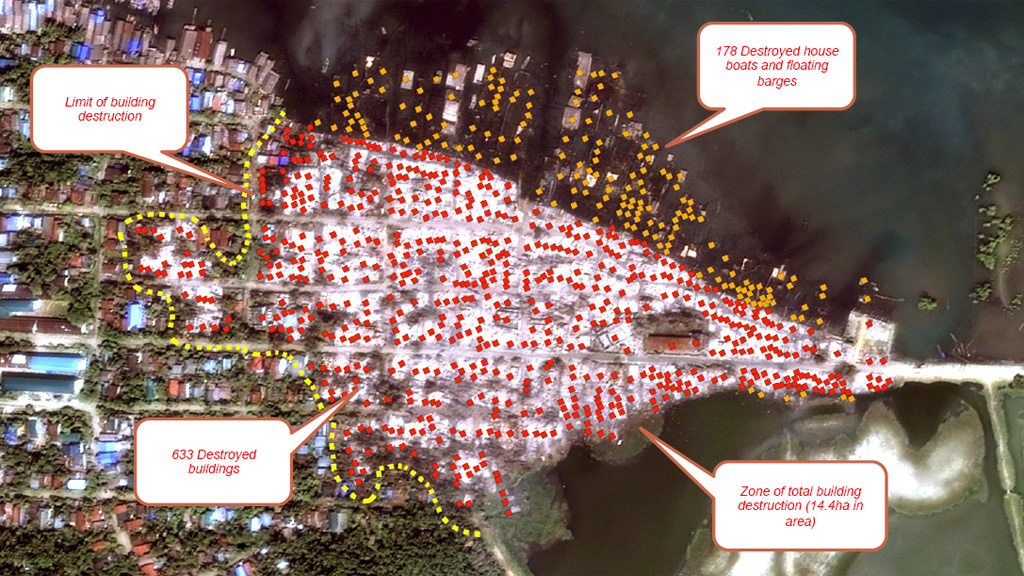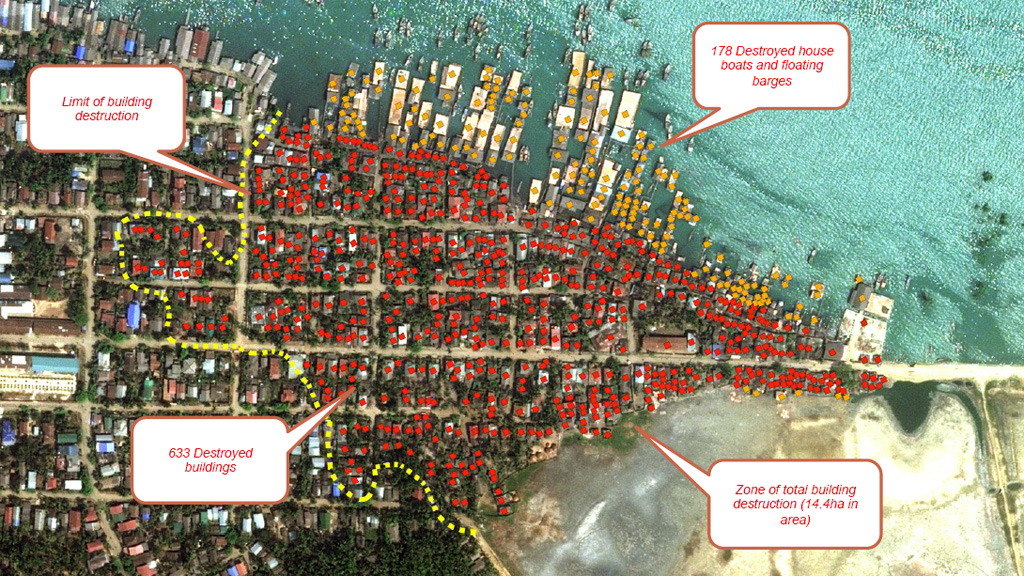Satellite images raise concerns for Burma Muslims
A human rights group expresses concern for the safety of thousands of Muslims in Burma after revealing satellite images of a once-thriving coastal community reduced to ashes after a week of violence.
Human Rights Watch says the series of images (below, in October 2012 and further below, in March 2012), which compare the same scene with images taken earlier in the year, show “near total destruction” of a predominantly Rohingya Muslim part of Kyaukpyu, one of several areas in Rakhine state where battles between Rohingyas and ethnic Rakhine Buddhists threaten to derail the country’s fragile democratic transition.
Tun Khin from the Burmese Rohingya Oraganisation in the UK told Channel 4 News he thinks that what is going on in the Rakhine region amounts to ethnic cleansins: “This is ethnic cleansing, proper planned by the state government and central government to eliminate the Rohingya people from Rakhine”.

More than 811 buildings and houseboats were razed in Kyaukpyu on 24 October, forcing many Rohingya to flee north by sea toward the state capital Sittwe, said Human Rights Watch.
“Burma’s government urgently needs to provide security for the Rohingya in Arakan (Rakhine) state, who are under vicious attack,” said Phil Robertson, the group’s deputy Asia director.
There were widespread unconfirmed reports of boatloads of Rohingyas trying to cross the sea border to neighbouring Bangladesh, which has denied them refugee status since 1992.
‘Irreparably damaged’
Dozens of boats full of Rohingyas with no food or water had fled Kyaukpyu, an industrial zone important to China, and other recent hotspots were seeking access on Friday to overcrowded refugee camps around the state capital Sittwe, according to four Rohingya refugee sources.
Read more: Channel 4 News Asia Correspondent John Sparks reports on the situation for the Rohingya
Some boats were blocked by security forces from reaching the shore and few Rohingyas managed to reach the camps, the sources said by telephone.

The United Nations has warned that Myanmar’s fledgling democracy could be “irreparably damaged” by the violence. Rohingyas are officially stateless.
Buddhist-majority Myanmar’s government regards the estimated 800,000 Rohingyas in the country as illegal immigrants from Bangladesh, and not as one of the country’s 135 official ethnic groups, and denies them citizenship.
But many of those expelled from Kyaukpyu are not Rohingya but Muslims from the officially recognised Kaman minority, said Chris Lewa, director of the Rohingya advocacy group, Arakan Project.
“It’s not just anti-Rohingya violence anymore, it’s anti-Muslim,” she said.